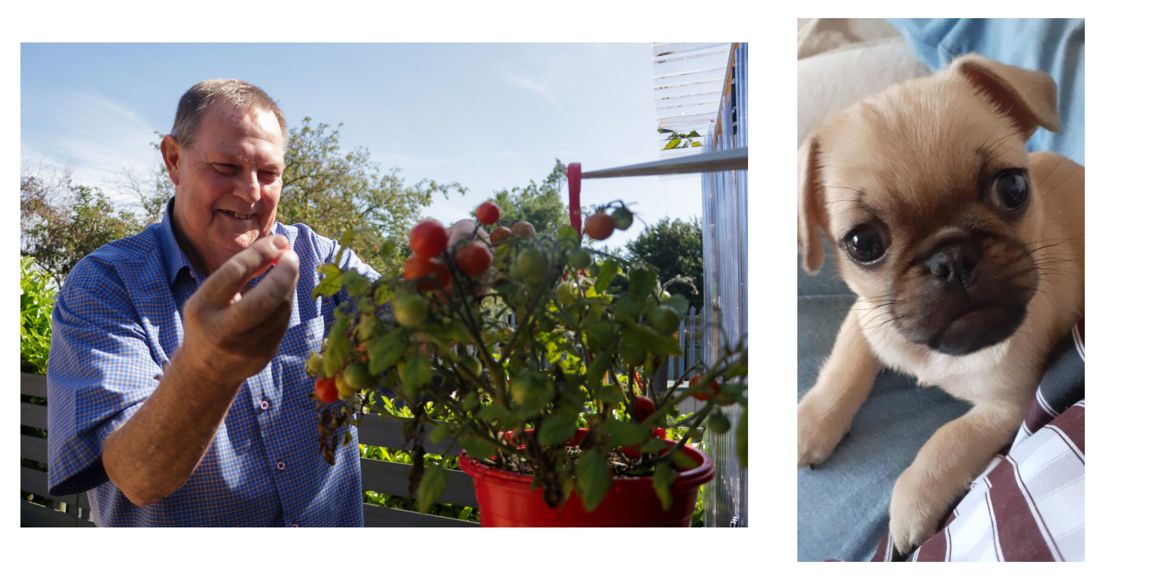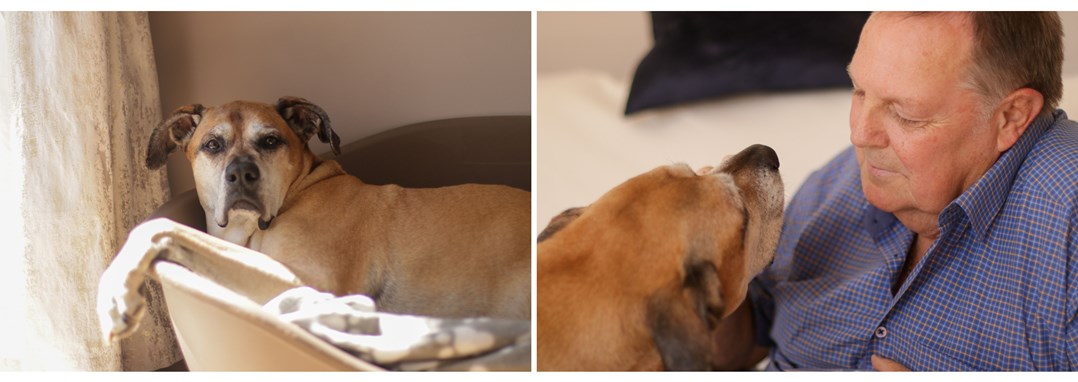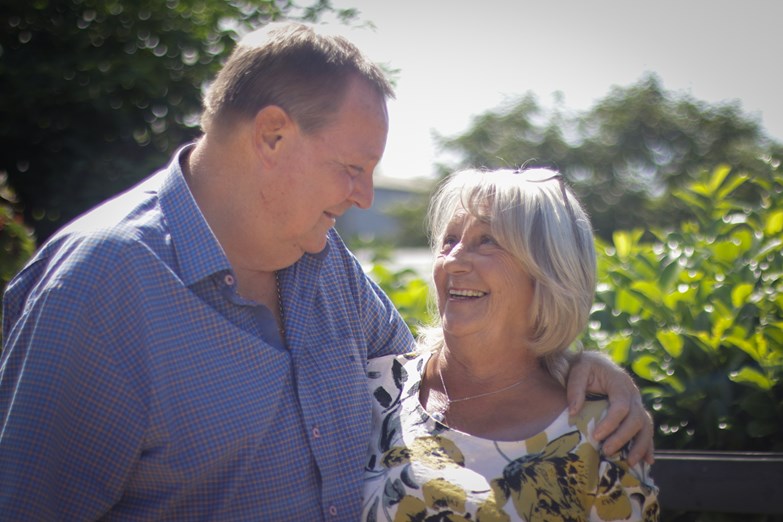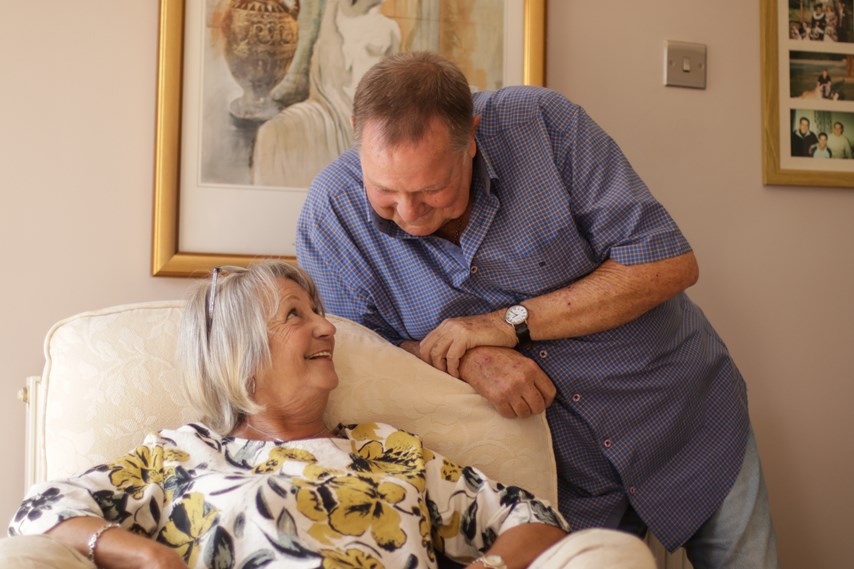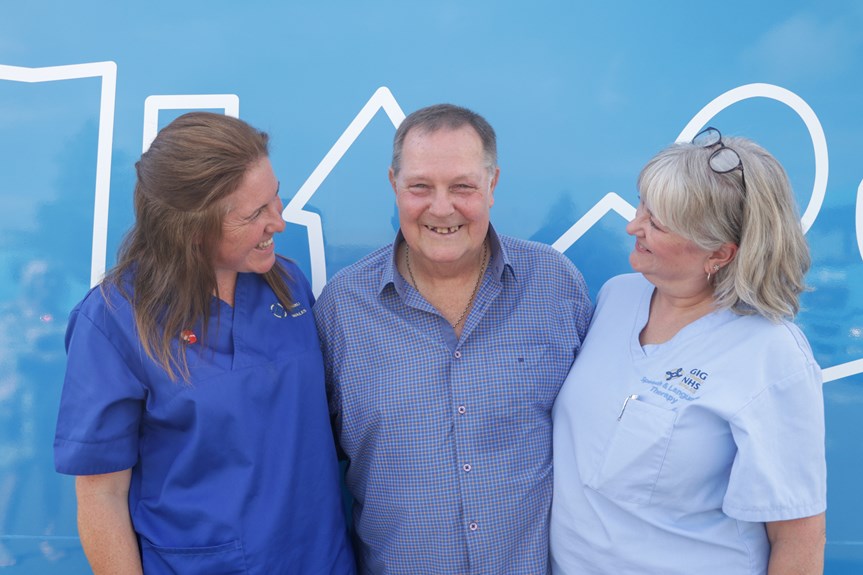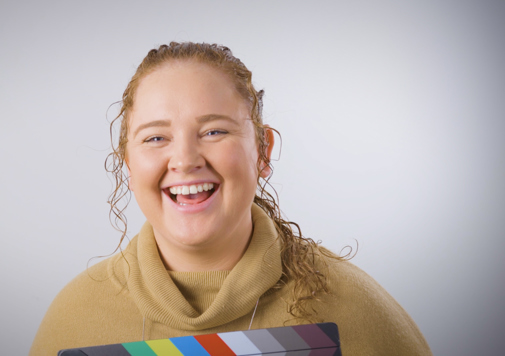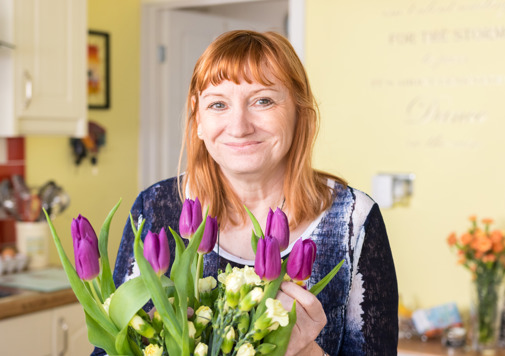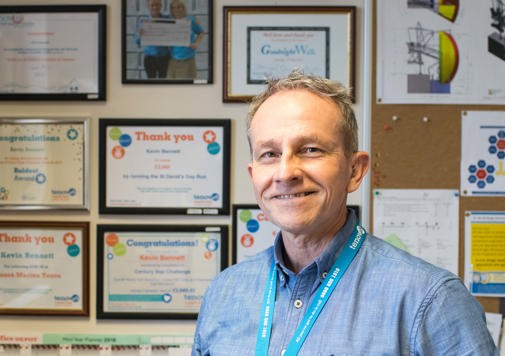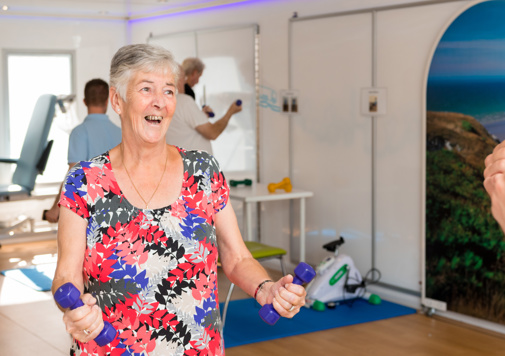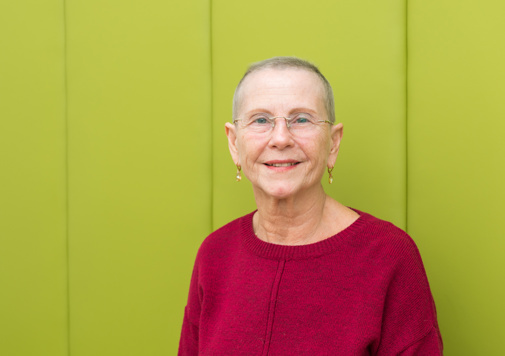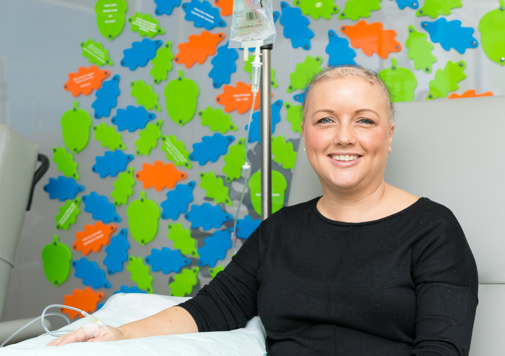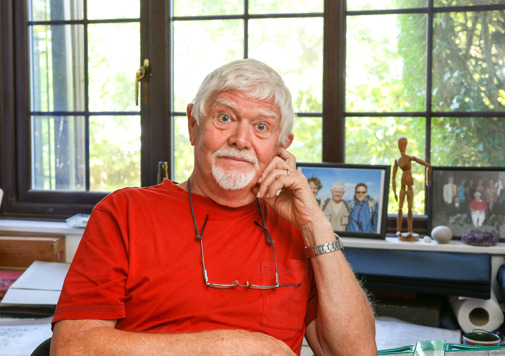As if that wasn’t enough, Allen was then diagnosed with prostate cancer, non-secondary, and detected from a blood test at the clinic. Doctors decided to delay treatment until he was fully fit.
“Strange as it sounds, I wasn’t too worried about the prostate cancer. I was still far too concerned with recovering from the other cancer, as it had been so tough, much harder than I’d ever imagined.”
Finally on the road to recovery, Allen wanted his old life back, and that including eating the food he loved again. He’d been told there was a chance he might never eat through his mouth again, a possibility that had “floored him”.
“I loved my food, and loved to cook,” said Allen. “I love a curry, a nice Madras, and wanted to my taste buds to return, so I could enjoy my food again.”
“I remember the first trickle of water going down my throat after months. I’d lost the ability to swallow and was scared I’d choke to death. That is where being at the “caravan” really helped.
“I started on water, but then I wanted something solid, so Lesley made me creamy bit of mashed potato with a drop of gravy. I started to train myself to eat again, and I am now eating steak and chips!”
Allen finished his last round of chemotherapy this summer for his prostate cancer and is living a full life again, going on fishing trips with his son, and looking after his brood of hens in the back garden.
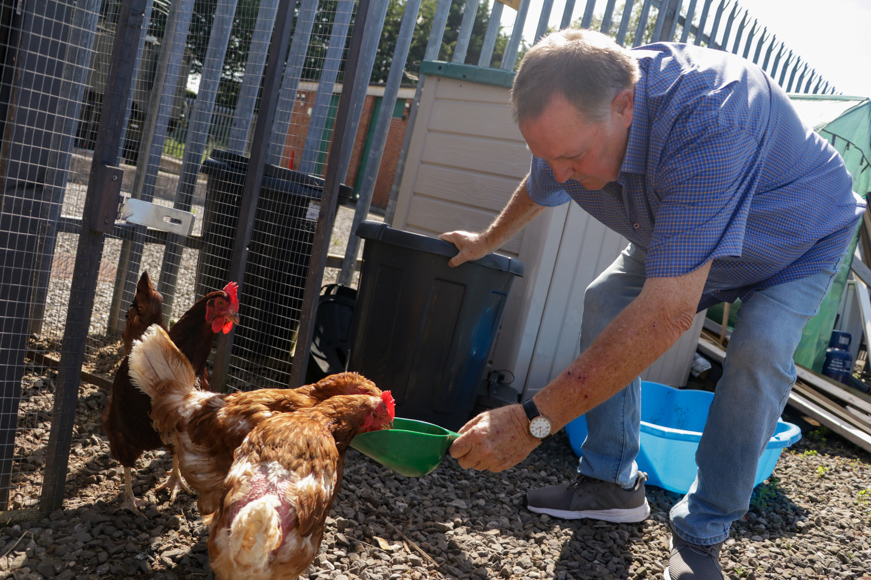
“Every day, I am so appreciative of my life now. My life was saved FOUR times during my journey! I am 70 this year, and don’t know how long I have left, but when you are diagnosed with cancer it steals your future from you because you don’t know if you have one. You can’t plan six months ahead, because you don’t know if you are going to live.
“There’s nothing to look forward to – you can’t say we will go on holiday next year, nothing like that.”
The couple say keeping a sense of humour kept them going on dark days.
“It’s so important to keep a sense of humour, you can’t be all doom and gloom,” said Lesley.
“We even tried to make the nurses and doctors days a little better. If you go in all doom and gloom, no one is happy, but if you go in and spread some joy, it keeps you uplifted and positive, as well as others, and all the time your heart is breaking.”
One thing they are forever grateful for is having each other.
“I just don’t know how people diagnosed with cancer go it alone,” said Lesley. “There needs to be more support for people who don’t have anybody else. It is great Tenovus Cancer Care provides that support, as you don’t realise how much you need it when it happens to you.”
Animal-lover Allen is celebrating his 70th birthday soon, and his one big birthday wish was to have another puppy, a wish that’s now granted.
Lesley and daughter Sharne recently clubbed together and bought Meg, a cross between a Pug and a Jack Russell, as a surprise. Meg is an addition to Honey and Bob, the couple’s cat.
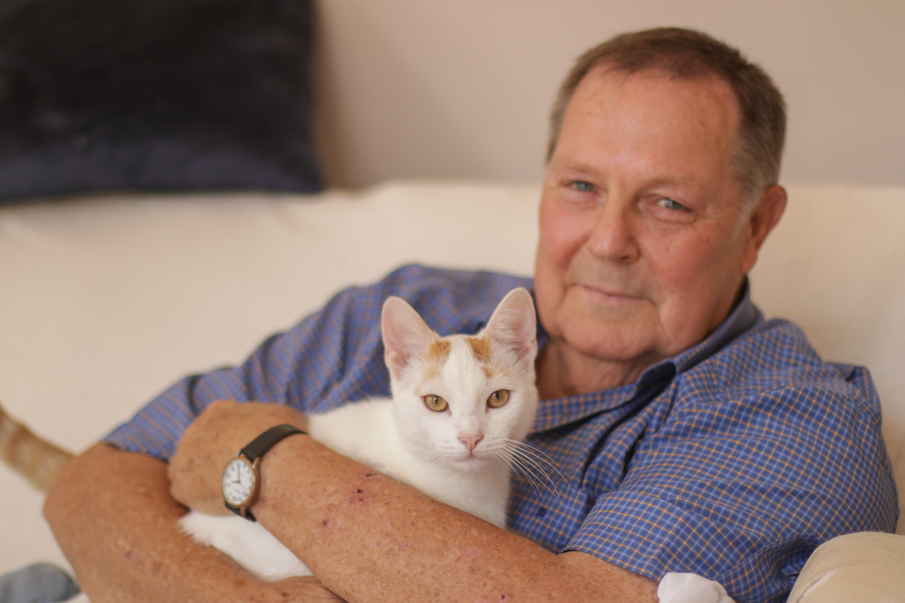
“I suppose I wore down Lesley in the end,” chuckles Allen, “as she wasn’t sure at first. My passion in life is Lesley – yeah, I love her to bits, and we are there for each other, but I also love my curries, fishing, and gardening.
I also wanted to train another dog, one last time. It was my job once, a dog handler with the police, and we have also run our own kennels. Some might call it being a dog whisperer, but it is in my blood, even the chickens follow me around!”
